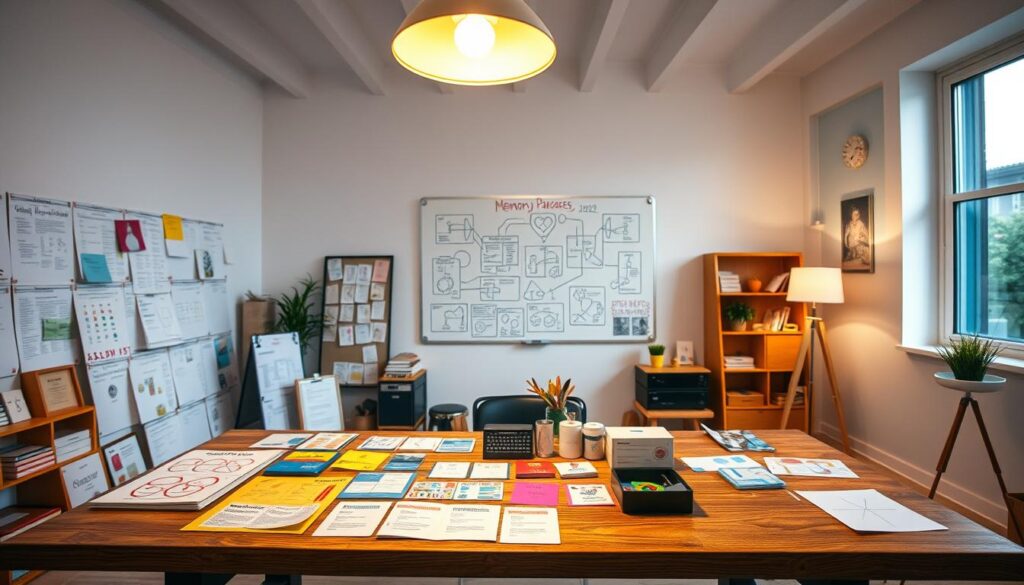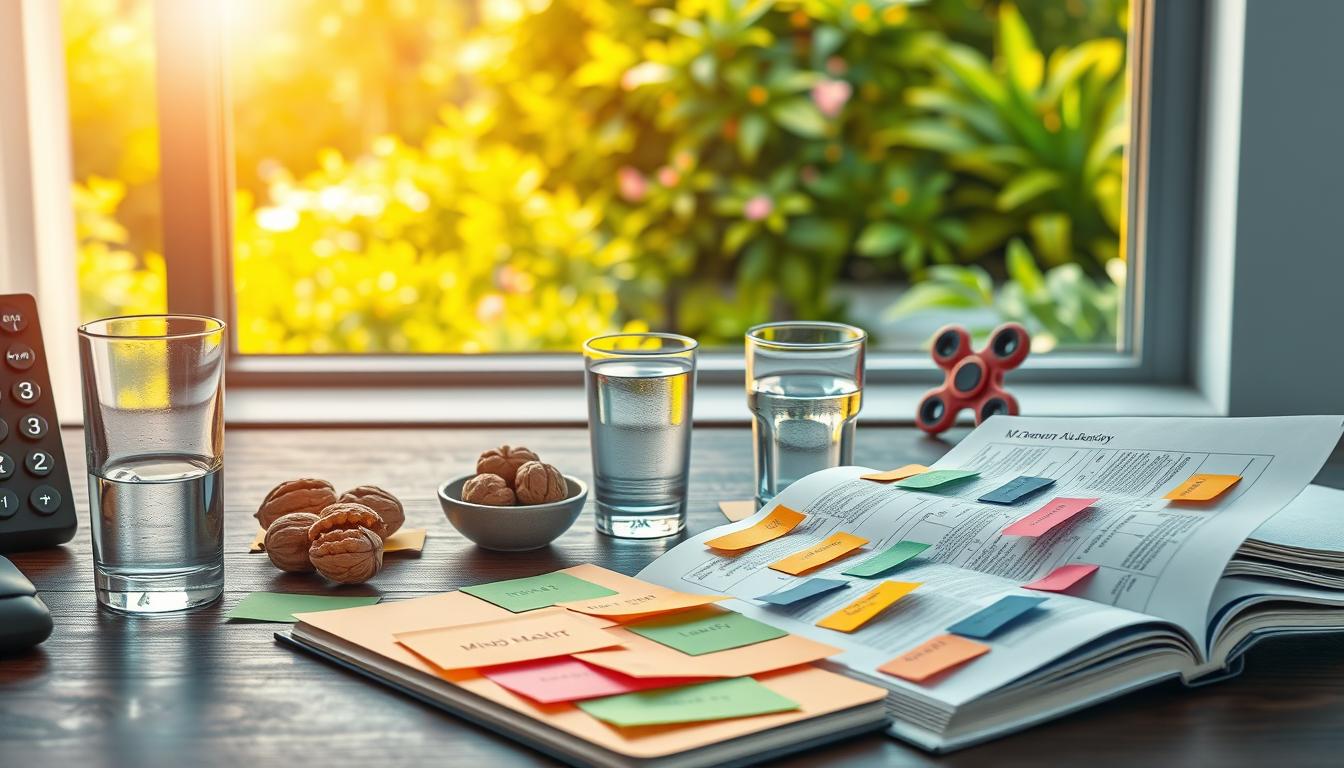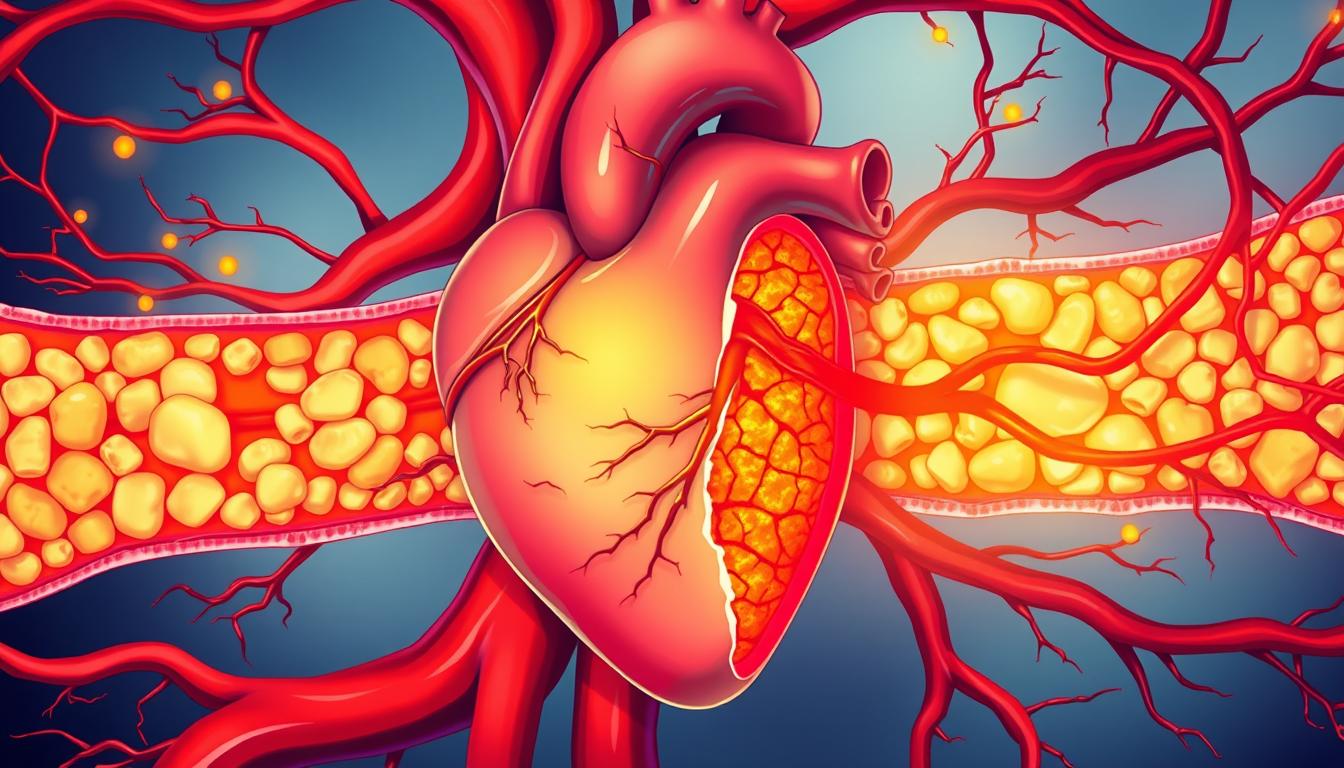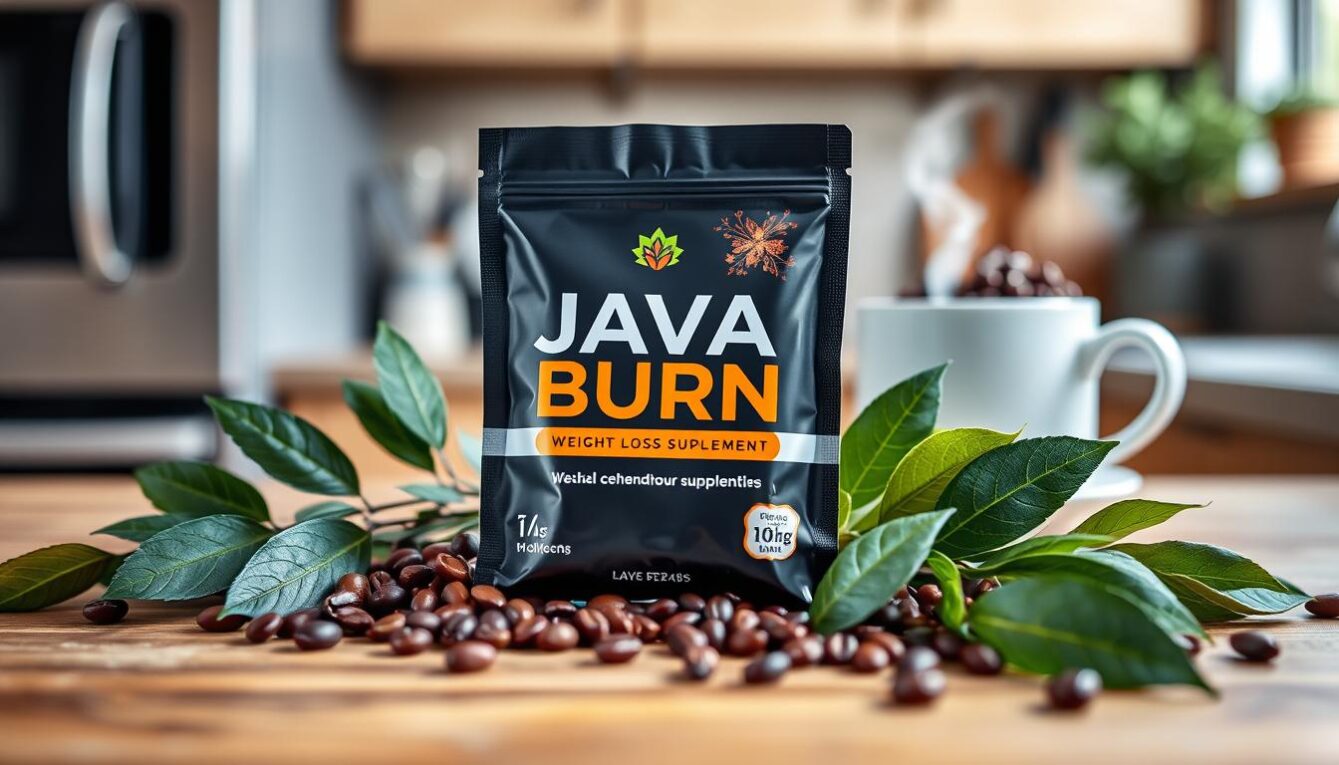Have you ever walked into a room and forgot why you went there? You’re not alone. The good news is that memory improvement doesn’t need years of training or expensive courses.
Your brain is very adaptable. With the right techniques, you can see improvements in just days. These scientifically-backed methods will help you remember names, appointments, and important details with confidence.
Memory enhancement can change your daily life. Whether you want to do better at work, school, or just remember where you put your keys, these strategies work.
In this guide, you’ll find practical techniques that fit into your daily routine. Your brain is ready for improvement – you just need the right approach.
Get ready to unlock your mental power. These methods are not only effective but also fun to practice.
Key Takeaways
- Memory improvement needs simple daily techniques, not expensive courses
- Your brain can adapt and improve within days using proven methods
- Enhanced recall helps with work performance, academics, and daily tasks
- Scientific research supports these practical memory enhancement strategies
- Consistent practice makes memory improvement both effective and enjoyable
Understanding How Your Memory Works
Learning how your memory works is key to improving it. Your brain has special paths for remembering and forgetting. This knowledge is the base for all memory improvement.
Your memory is like a complex filing system, not just a box. Info goes through paths in your brain. Some info stays forever, while others vanish quickly.
“Memory is not like a container that gradually fills up; it is more like a tree growing hooks onto which the memories are hung.”
The Three Types of Memory Systems
Your brain has three main memory systems. They work together smoothly. Each system plays a special role in how you remember things.
Sensory memory is your brain’s first filter. It catches everything your senses pick up but only for a short time. It deals with sights, sounds, smells, and touches before deciding what to keep.
Short-term memory is your mental desk. It holds about seven things for 15 to 30 seconds. This is where you keep phone numbers, directions, or names when you first meet someone.
Long-term memory is your permanent storage. It can hold lots of info for years or decades. Good memory tips help move important info from short-term to long-term.
Why Memory Sometimes Fails You
Memory slips are common and not a sign of weakness. They show how your brain works naturally.
The “tip-of-the-tongue” feeling is when you know you know something but can’t find it. Your brain has the info but can’t find the right path to it.
Forgetting where you put things is because your brain didn’t mark it as important. You were likely distracted when you put them down.
Blanking out during speeches or tests is often due to stress. High anxiety can block access to info you know.
These memory issues have solutions. Knowing why they happen helps you use the right memory tips. The next parts will show you how to boost each memory system and avoid these problems.
Simple Lifestyle Changes That Enhance Memory
Improving your memory is easy. It starts with simple changes in your daily life. These choices help your brain work better and remember more.
Changing your lifestyle can really help your memory. Each good change helps the others, making your brain healthier. Sleep, exercise, and food are key to better memory.
Sleep Quality and Memory Consolidation
Your brain works hard when you sleep. It moves important info from short-term to long-term memory. This is called memory consolidation.
Not enough sleep messes with this process. It makes it hard for your brain to remember things. Studies show people who sleep less remember 40% less than those who sleep well.
“Sleep is the golden chain that ties health and our bodies together, and memory consolidation happens most effectively during the deepest stages of sleep.”
Make your bedroom sleep-friendly. It should be cool, dark, and quiet. Go to bed and wake up at the same time every day. Don’t use screens before bed because they can mess with your sleep.
Try to sleep seven to nine hours each night. Your brain will thank you with better memory and learning skills.
Exercise Benefits for Brain Function
Exercise is good for your brain. It makes your brain get more blood, which helps with memory. It also helps grow new brain cells.
You don’t need to run marathons to improve your memory. Just 30 minutes of brisk walking can help a lot. Studies show people who exercise have bigger brain areas for learning and memory.
When you exercise matters too. Morning workouts help you focus all day. Afternoon exercise helps you remember what you learned. Evening exercise can help you sleep better, which is good for your memory.
Find activities you like to make exercise fun. Dancing, swimming, hiking, or sports are all great for your brain and keep you motivated.
Nutrition for Optimal Cognitive Performance
Your brain uses a lot of calories, so eating right is key for memory. The right foods help your brain work better and protect it from damage. Eating well can make your brain sharper over time.
Omega-3 fatty acids are important for memory. They help your brain cells and reduce inflammation. Antioxidants also protect your brain from damage.
| Brain-Boosting Nutrients | Memory Benefits | Best Food Sources | Daily Serving Goal |
|---|---|---|---|
| Omega-3 Fatty Acids | Supports neuron communication and reduces inflammation | Salmon, walnuts, chia seeds, flaxseeds | 2-3 servings per week |
| Antioxidants | Protects brain cells from damage and aging | Blueberries, dark chocolate, spinach, green tea | 1-2 cups daily |
| B Vitamins | Essential for neurotransmitter production | Eggs, leafy greens, legumes, whole grains | Multiple servings daily |
| Magnesium | Supports learning and memory formation | Almonds, avocados, dark leafy greens | 1-2 servings daily |
Drinking enough water is also important for memory. Even a little dehydration can hurt your focus and memory. Try to drink eight glasses of water a day, more if you’re active or live in a hot place.
Stay away from foods that are bad for your brain. Avoid foods high in sugar and unhealthy fats. Too much alcohol can also mess with your memory.
Make small changes in your diet to help your memory. Eat nuts or berries instead of sugary snacks. Choose whole grains over white carbs. Add fatty fish to your meals. These changes can make a big difference in your memory over time.
By improving your sleep, exercising regularly, and eating well, you can make your brain sharper. These changes work together to help you remember better.
Easy Tricks to Boost Your Memory Fast with Proven Techniques
Three easy ways can make your memory better in just weeks. These easy tricks to boost your memory fast have helped many people. Even memory champions and scientists use them.
These methods are simple and work well. You don’t need special tools or expensive classes. They use your brain’s natural ways to learn.
The Memory Palace Method
The memory palace turns any place into a memory spot. Imagine walking through places you know, like your home. You place things you want to remember at each spot.
This old trick uses your brain’s love for remembering places. When you need to recall, just walk through your mind again. The items will be right where you left them.
Choose a familiar path with ten spots. Your morning walk from bedroom to kitchen is great. Start with simple things like grocery lists before moving to harder stuff.
Chunking Information for Better Recall
Chunking breaks big chunks of info into small bits. Your brain handles these bits better than long strings. It’s great for numbers, lists, and sequences.
Phone numbers show how chunking works. Instead of 5551234567, break it into 555-123-4567. This trick works for learning words, procedures, or speeches too.
Make groups of three to seven items. Your brain works best with this size. Use patterns or connections to make chunks easier to remember.
Repetition and Spaced Learning
Spaced repetition reviews info at the right times. It follows your brain’s forgetting curve. You review often at first, then less as it sticks in your memory.
The best schedule is: review after one day, then three days, then a week, then two weeks, then a month. This keeps info fresh without too much study.
Tools can help, but reminders on your calendar work too. The key is to stick to the schedule, even when it feels easy. This keeps your learning from fading away.
| Technique | Best For | Learning Time | Effectiveness Rating | Practical Examples |
|---|---|---|---|---|
| Memory Palace | Lists, sequences, speeches | 2-3 weeks | Excellent | Shopping lists, presentations, study notes |
| Chunking | Numbers, vocabulary, procedures | 1-2 weeks | Very Good | Phone numbers, foreign words, recipes |
| Spaced Repetition | Facts, concepts, skills | Ongoing | Excellent | Language learning, exam prep, professional training |
| Combined Methods | Complex subjects | 3-4 weeks | Outstanding | Academic courses, certification programs, skill mastery |
These memory tricks work best together. Use chunking to organize, then place in your memory palace. Use spaced repetition to keep it all fresh.
Practice makes permanent with these strategies. Start with one and add more as you get better. Your memory will improve in all areas of life.
The best learners tailor these methods to fit their needs. Try different ways and times to find what works for you.
Powerful Mnemonics and Memory Aids
Learning to remember becomes easy with mnemonics and memory aids. These smart tricks turn hard info into easy-to-remember stuff. They help you learn new things, study for tests, or remember important stuff.
Mnemonics are like mental shortcuts. They help your brain remember by linking new info to things you already know. This makes remembering things faster and more reliable.

Acronyms and Acrostics
Acronyms make long lists easy to remember by using the first letter of each item. For example, “HOMES” helps you remember the Great Lakes: Huron, Ontario, Michigan, Erie, and Superior. It’s easier to remember one word than five names.
Make your own acronyms for better memory. Use the first letter of each step in a process to make a word or phrase. The more personal it is, the better you’ll remember it.
Acrostics use sentences where each word starts with the letter you need to remember. “My Very Educated Mother Just Served Us Nine Pizzas” helps recall the planets in order from the sun. They tell a story your brain can follow.
Make acrostics vivid and unusual. Your brain likes strange or funny images. So, make silly sentences that make you smile.
Visual Association Techniques
Your brain loves visual info, making visual association techniques very effective. These methods link abstract ideas to images that stick in your mind.
The linking method makes a mental movie of items in a sequence. To remember a list, picture each item doing something silly with the next one. The sillier, the better.
Substitution techniques replace hard info with familiar images. If you need to remember “Baker,” picture them covered in flour or holding bread. This makes their name easy to remember.
Location-based associations tie info to places you know well. Place each item in a different room of your house. This creates a mental map for remembering.
Rhymes and Songs for Memory
Music and rhythm make strong memories. That’s why you remember jingles from years ago, but forget other stuff from the same time.
Rhyming mnemonics turn facts into catchy songs. “I before E, except after C” helps many people spell right. The rhythm and rhyme make it easy to remember.
Make your own rhymes for important info. Set key facts to songs or simple rhythms. Your brain will replay these songs when you need the info.
Songs are great for remembering things in order, like dates, formulas, or vocabulary. The melody keeps everything in the right order and makes learning fun.
Practice these mnemonics and memory aids to get better. Start simple and move to harder stuff. Soon, you’ll make these mental shortcuts easily, making your memory stronger.
Brain Training Exercises for Daily Practice
Your brain needs challenges like your muscles need workouts. Brain training exercises are fun and help your memory. They make new paths in your brain and make old ones stronger.
Be consistent and mix things up. Challenge different parts of your brain often. This keeps your mind active and prevents boredom.
Begin with 10-15 minutes a day. You can add more time as you get better. The best part is you can do these exercises anywhere, anytime.
Memory Games and Puzzles
Card matching games are great for working memory. Start with 8 pairs of cards face down. Flip two cards at a time to find matches. This game helps you remember things better.
Try number sequence challenges to improve recall. Start with a 4-digit sequence like 7-3-9-2. Look at it for 5 seconds, then write it down. Increase the digits as you get better.
Crossword puzzles and word searches are good for many skills. They test your vocabulary, pattern recognition, and problem-solving. Brain training exercises like these also make you faster at processing information.
Sudoku puzzles are great for logical thinking. Start with easy 4×4 grids and move to 9×9 puzzles. These games help you think of many things at once.
Concentration Building Activities
The counting meditation exercise improves focus. Count slowly from 1 to 100, focusing on each number. If your mind drifts, bring it back to counting. This exercise is like weightlifting for your brain.
Visual tracking exercises boost sustained attention. Follow a moving object with your eyes for 30 seconds. Use a pendulum, ball, or finger patterns for this.
The backwards alphabet challenge tests many skills. Say the alphabet from Z to A fast. Time yourself and try to beat your record. This exercise combines memory, speed, and flexibility.
Make exercises harder as you get better. Start with easy versions and increase the challenge. Keep track of your progress to see how you’re improving.
Focus and Concentration Boosters
Focus and concentration boosters make your mind a memory powerhouse. How well you keep your attention affects how well you remember things. In today’s world, having strong concentration skills is a big plus.
Improving your focus makes every memory trick work better. Your brain can handle information better and make stronger connections. This section will show you how to get better at concentrating.

Eliminating Distractions
Digital distractions are the biggest challenge to your focus. Your phone, social media, and emails can pull you away from what’s important. Turn off all non-essential notifications when you’re studying or working.
Make a clean workspace without clutter. Remove things that don’t help you right now. A tidy space helps your mind stay on track.
Noisy environments can hurt your concentration. Use headphones or find a quiet spot for memory work. Some people like soft music, while others need silence.
Worry or random thoughts can distract you too. Keep a notepad handy to jot down these thoughts. This helps clear your mind and keeps important ideas safe.
Single-Tasking Strategies
Multitasking is a myth that hurts your memory. Your brain can’t really focus on more than one thing at once. It switches tasks fast, making you less efficient and less good at remembering.
Focus on one task at a time. This lets your brain work better. You’ll do tasks faster and remember more.
Use the “one-tab rule” on your computer. Keep only one browser tab open. This stops you from jumping between websites and losing focus.
Set specific times for different activities. Stick to the task at hand during those times. Don’t check messages or switch tasks.
| Multitasking Myths | Single-Tasking Reality | Memory Impact |
|---|---|---|
| Saves time by doing multiple things | Actually takes 25% longer to complete tasks | Poor information encoding |
| Keeps you more engaged | Reduces quality of attention | Weaker memory formation |
| Makes you more productive | Increases errors and stress | Difficulty with recall |
| Helps manage busy schedules | Creates mental fatigue faster | Reduced learning capacity |
Time Management for Better Focus
The Pomodoro Technique breaks work into 25-minute chunks. Take a 5-minute break after each. It works with your brain’s natural cycles and prevents burnout.
Time-blocking means scheduling activities for specific hours. Put memory practice when you focus best. Most people focus best in the morning, but find your best time.
Batch similar tasks together to keep your momentum. Do all your reading, then writing, and then review. This saves mental energy.
Use a timer to stay focused. Knowing you have limited time helps your brain concentrate. Set goals that challenge you but don’t stress you out.
Plan some extra time between tasks to avoid rushing. Rushing hurts your focus. Give yourself enough time to switch smoothly.
Track when you focus best and when you start to lose it. Schedule important memory work when you’re most alert.
The successful warrior is the average person with laser-like focus.
These tips will make every memory trick work better. Start with one and add more as you get better. Remember, improving focus takes practice, but it will make your life better.
Mindfulness Practices for Memory Enhancement
Simple mindfulness techniques can greatly improve your memory. They need just minutes each day. These mindfulness practices for memory help your brain stay focused and present. This makes it easier to learn new things and remember old ones.
When your mind jumps between past and future worries, it’s hard to remember things well. Mindfulness stops this by keeping your focus on now. This helps your brain work better and make strong memory paths.
Studies show mindfulness boosts working memory, attention, and thinking flexibility. And the best part? You don’t need hours of meditation or fancy gear to see benefits.
Meditation Techniques for Mental Clarity
Simple meditation can clear your mind and sharpen focus in just a few minutes. Start with focused attention meditation. Focus on your breath or a word.
The body scan meditation is great for memory. Start at your head and move down your body slowly. This trains your brain to stay focused, which helps when learning new stuff.
Try loving-kindness meditation when stress hurts your memory. Spend five minutes sending kind thoughts to yourself and others. This lowers stress hormones that harm memory-making brain areas.
For busy days, use micro-meditations. Take three deep breaths before big meetings or study times. Even short mindfulness moments can improve how well you remember things.
Breathing Exercises for Focus
Controlled breathing wakes up your brain’s memory-making part. The 4-7-8 breathing technique is very good for this.
Here’s how to do it: Breathe in for 4 counts, hold for 7, then breathe out for 8. Do this four times before studying or when you need to remember something important.
The box breathing method is another great choice. Breathe in for 4 counts, hold for 4, breathe out for 4, and hold empty for 4. This steady rhythm calms your mind and improves focus.
Use belly breathing when you feel too busy or mixed up. Put one hand on your chest and the other on your stomach. Focus on your stomach moving more than your chest. This deep breathing reduces stress and clears your mind.
Present-Moment Awareness
Being in the present moment changes how you remember things. When you’re fully there, your brain makes stronger connections that last longer.
Try the 5-4-3-2-1 grounding technique to stay present. Notice 5 things you see, 4 things you touch, 3 things you hear, 2 things you smell, and 1 thing you taste. This brings your attention back to now.
Use mindful observation in everyday life. When eating, focus on the taste, texture, and smell of your food. When walking, notice each step and what’s around you. This practice makes you better at paying attention to details.
The noting technique helps manage distracting thoughts without fighting them. When your mind wanders, just say “thinking” and come back to what you’re doing. This builds mental discipline that helps your memory.
| Mindfulness Technique | Time Required | Memory Benefit | Best Used For |
|---|---|---|---|
| 4-7-8 Breathing | 2-3 minutes | Improved focus | Before studying |
| Body Scan | 5-10 minutes | Enhanced attention | Daily practice |
| 5-4-3-2-1 Grounding | 1-2 minutes | Present awareness | When distracted |
| Micro-meditation | 30 seconds | Mental reset | Throughout day |
Start with one technique that you like. Practice it every day for a week before trying others. The goal is to make mindfulness a habit that helps your memory for years.
Technology Tools and Apps for Memory Training
Modern tech gives us great ways to boost our memory. Apps and digital tools use science and easy-to-use designs. They offer memory improvement techniques right on your phone or computer.
Choosing the right tech is key. It should help your memory, not just do it for you. Using tech wisely can speed up your learning and build strong brain skills.
Top-Rated Memory Enhancement Applications
Many apps are known for their science and results. Lumosity has games made by neuroscientists. It tracks your progress and changes the game’s level based on how you do.
Anki changes how we learn with flashcards. It uses smart timing to help you remember better. You can make your own decks or use ones from others.
Peak has fun brain games for different skills like memory and solving problems. Its bright design and games make learning fun and easy to keep up with.
CogniFit offers training based on science. It tests your brain and makes exercises just for you.
| Application | Primary Focus | Key Feature | Best For |
|---|---|---|---|
| Lumosity | Comprehensive brain training | Adaptive difficulty | General cognitive enhancement |
| Anki | Spaced repetition learning | Custom flashcard creation | Language learning and facts |
| Peak | Gamified brain workouts | Progress tracking | Daily mental exercise |
| CogniFit | Personalized assessment | Scientific validation | Targeted cognitive training |
Digital Organization Systems for Enhanced Recall
Good digital note-taking systems help your memory and natural recall. Notion is a platform for notes, tasks, and databases. It lets you create pages that connect like your brain does.
Obsidian helps you make knowledge networks. It shows how ideas are connected, making it easier to remember and find information.
Evernote is great for notes and keeping them synced across devices. Its search is powerful, so you can find what you need fast.
Using tech to help your memory is best. These tools help you organize and review important info. They make learning easier.
Start with one main app and one note-taking system. Learn them well before adding more. This avoids feeling overwhelmed.
Don’t forget to take breaks from screens. The goal is to improve your brain, not get too caught up in tech. Use these tools to build your natural memory skills.
Quick Memory Hacks for Everyday Situations
You face memory challenges every day. These can affect how you interact with others and get things done. But, effective recall strategies can help you quickly.
At networking events, remembering names is key. For your friend’s new phone number or finding your car keys, these tips will help. Let’s explore some useful techniques for everyday life.
Mastering Name and Face Recognition
Remembering names is a valuable skill. When you meet someone new, repeat their name right away. Say, “Nice to meet you, Sarah,” for example.
Link the person’s name to a unique facial feature. For instance, if someone named Rose has rosy cheeks, remember that. For names without obvious links, use word associations.
Make hard names easy to remember. “Kowalski” becomes “cow-walking-ski” in your mind. Silly connections stick better than serious ones.
Use the pause technique if you forget someone’s name. Say, “I’m sorry, could you remind me of your name again?” It shows honesty over awkwardness.
Practice the three-second rule. Spend three seconds focusing on someone’s face and name. This improves your recall for future meetings.
Numerical Information That Sticks
Phone numbers are easier to remember in chunks. Instead of 5551234567, think “555-123-4567.” Group numbers by patterns you know.
Turn numbers into words using your phone keypad. The number 2665 becomes “COOL” (C-O-O-L). This works well for short numbers like PIN codes.
Use the major system technique for longer numbers. Assign consonant sounds to each digit. Then, create words. The number 23 becomes “name” (N-M).
Create stories for important dates and addresses. Imagine Caesar getting his teeth cleaned on March 15th at 2:30 PM. Weird mental images help you remember.
Look for patterns in numbers. If a phone number has 369, think of it as “counting by threes.” Your brain likes patterns more than random numbers.
Never Losing Track of Your Belongings
Give each item a home. Your keys go in the same bowl by the door. Your glasses sit on the same nightstand. Consistency helps you find things.
Use the “announce and visualize” method. Say, “I’m putting my phone on the kitchen counter next to the coffee maker.” This helps your memory.
Follow the one-minute rule for important items. Before leaving, spend one minute looking for your essentials. This prevents most lost items.
Make mental maps of where you park. Note three landmarks: “I’m parked between the blue truck and the light pole, near Target.” These help you find your car.
Use your smartphone for backup memory. Take a photo of where you parked or placed something unusual. Technology helps your memory without replacing it.
Practice the “touch and think” technique for items like your wallet or passport. Touch the item and think about where it is. This creates strong memory connections.
These memory hacks need no special training or tools. Start with one technique, practice it for a week, then add another. Soon, these strategies will become second nature, saving you time and boosting your confidence.
Conclusion
Start your memory journey by picking one or two techniques from this guide. Choose what feels natural to you. The memory palace is great for visual learners. Chunking is good for numbers and lists. Mnemonics help remember facts longer.
Begin with small steps and grow over time. Spend just five minutes each day on memory exercises. Use apps during your commute. Practice remembering names at social events. These small steps lead to big changes in your brain.
Your brain gets better at new things fast. You’ll see improvements in focus and memory in weeks. Students do better on tests. Professionals remember client details more easily. Everyone feels more confident in their daily tasks.
It’s normal to have ups and downs in learning. Some days you remember everything clearly. Other days, it feels like your memory is foggy. This happens to everyone. Keep practicing your chosen techniques. Consistency is key, not perfection.
Improving your memory changes your life in many ways. Better recall means less stress about forgetting important things. Stronger focus helps you learn new skills quickly. Enhanced brain abilities can boost your career and personal relationships.
Your memory journey starts today. Pick one technique from this guide and try it today. Your future self will thank you for the effort you’re putting in now.













